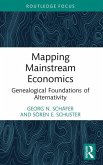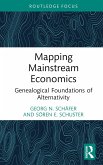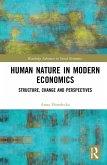The strict conversation of financial capital allows accountants to preserve capitalism in its current form. Thus, building a more humane economy will require a new accounting model.
Humanitarian Ecological Economics and Accounting: Capitalism, Ecology and Democracy argues for the adoption of a CARE model: comprehensive accounting in respect of ecology. This new model will take the traditional weapons of capitalist accounting and turn them against capitalism, with a goal to protect and conserve human and natural capital within the framework of a democratic society. The CARE model has been conceived as the potential basis of a new type of market economy and of a new type of governance of firms and nations. Additionally, this allows for a new conception of capital, cost and profit that helps with moves towards a society of the commons. The first part of the book explores the reconstruction of accounting and economics from the ground up, outlining the theoretical basis for the model. The second part of the book explores the transformation of the governance of firms and nations. Finally, an additional section is dedicated to the conception of a new model of national accounting.
This book will be of significant interest to readers of ecological economics, critical accounting and heterodox economics.
Humanitarian Ecological Economics and Accounting: Capitalism, Ecology and Democracy argues for the adoption of a CARE model: comprehensive accounting in respect of ecology. This new model will take the traditional weapons of capitalist accounting and turn them against capitalism, with a goal to protect and conserve human and natural capital within the framework of a democratic society. The CARE model has been conceived as the potential basis of a new type of market economy and of a new type of governance of firms and nations. Additionally, this allows for a new conception of capital, cost and profit that helps with moves towards a society of the commons. The first part of the book explores the reconstruction of accounting and economics from the ground up, outlining the theoretical basis for the model. The second part of the book explores the transformation of the governance of firms and nations. Finally, an additional section is dedicated to the conception of a new model of national accounting.
This book will be of significant interest to readers of ecological economics, critical accounting and heterodox economics.








